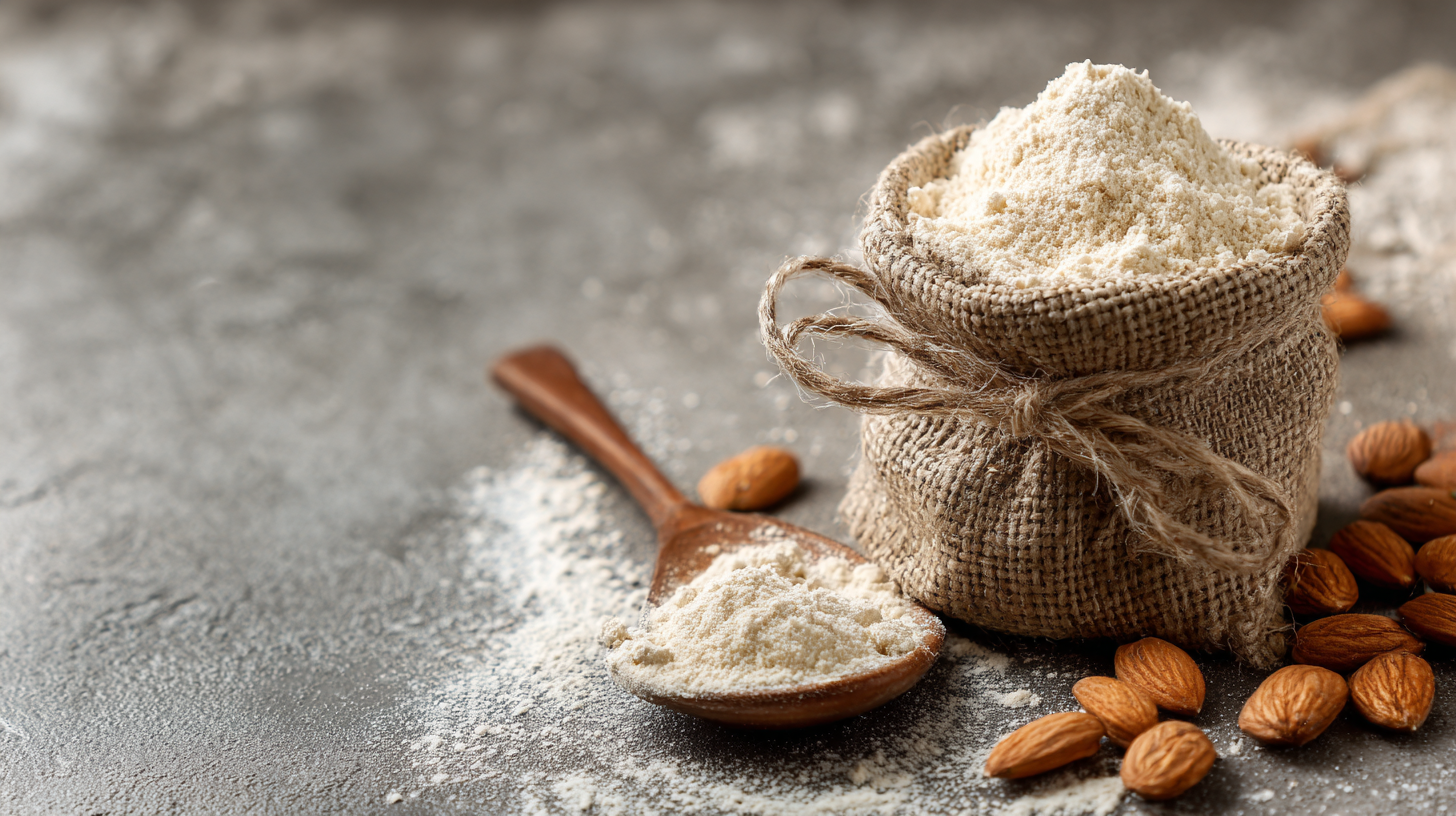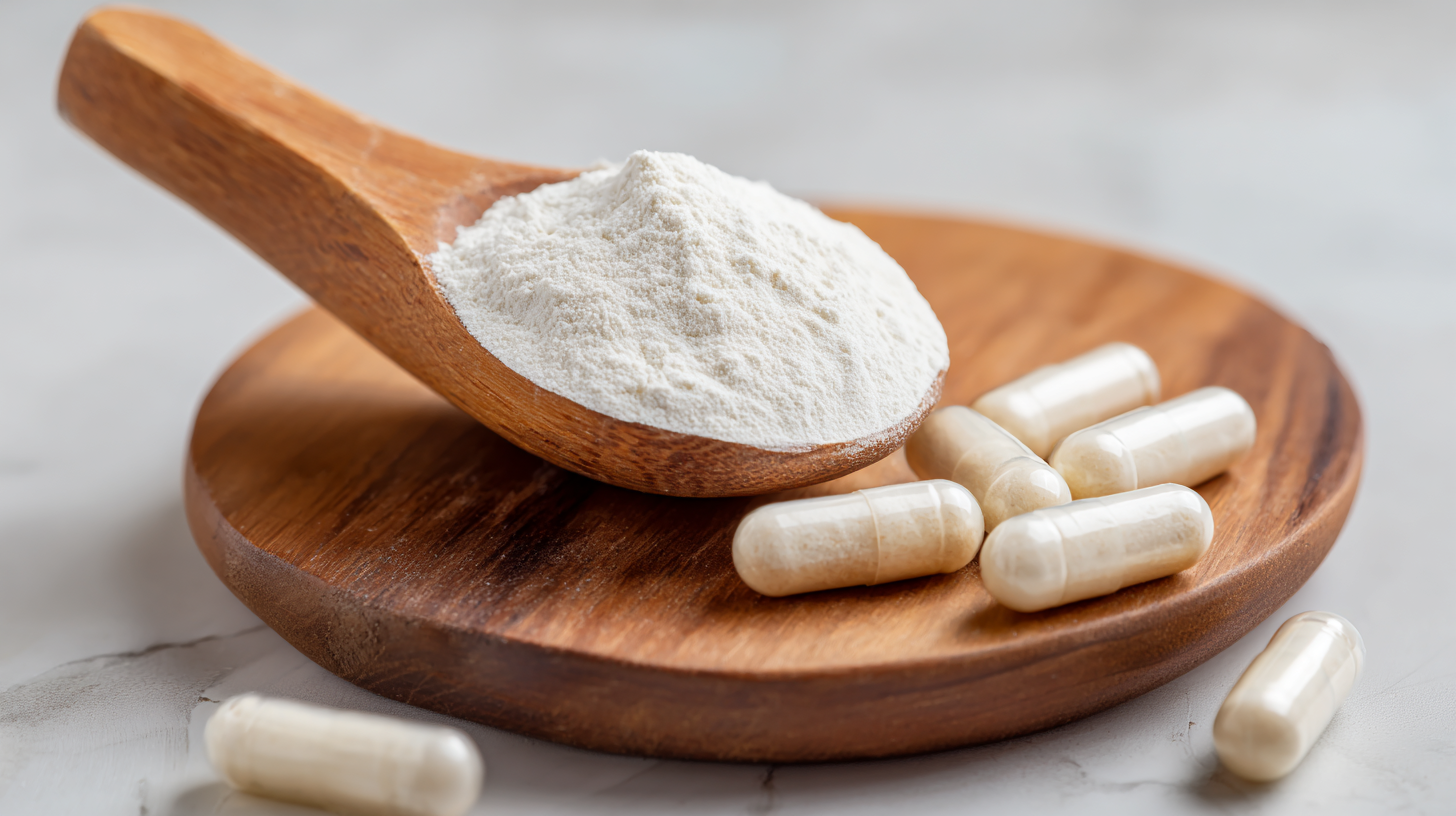In recent years, the importance of magnesium in our diets has come to the forefront, with studies showing that a staggering 50% of the population fails to meet the recommended daily intake of this essential mineral. Magnesium malate, a compound formed from malic acid and magnesium, has gained significant attention for its potential health benefits, particularly when consumed in bulk. According to a report by the National Institutes of Health, adequate magnesium levels can enhance muscle function, improve energy production, and support cardiovascular health. As interest in natural supplements continues to rise, understanding the benefits of Bulk Magnesium Malate becomes crucial for those looking to optimize their wellness. This guide explores the multifaceted advantages of incorporating bulk magnesium malate into your daily regimen, backed by scientific evidence and expert insights, to empower you in making informed health choices.

Magnesium malate is a compound formed from magnesium and malic acid, which is naturally found in fruits and vegetables. It plays a crucial role in various bodily functions, including energy production, muscle function, and nervous system regulation. The presence of malic acid enhances magnesium's absorption in the body, making it more effective than other magnesium supplements. This combination helps to alleviate fatigue, reduce muscle soreness, and improve overall metabolic processes.
When considering the incorporation of magnesium malate into your health regimen, it’s essential to pay attention to dosage. For many adults, a daily intake of 200-400 mg is recommended. Always consult with a healthcare professional before starting any new supplement to ensure it complements your specific health needs. Additionally, consider taking magnesium malate with meals to enhance absorption and minimize potential gastrointestinal discomfort.
Another tip is to pair magnesium malate with foods rich in vitamin B6, as this vitamin can aid in magnesium utilization. Foods such as bananas, chickpeas, and whole grains are excellent sources. Incorporating these into your diet can create a synergistic effect, enhancing the benefits of magnesium malate on your health and well-being.
| Benefit | Description | Mechanism of Action |
|---|---|---|
| Improves Energy Levels | Helps convert food into energy, reducing fatigue and enhancing physical performance. | Magnesium plays a key role in the Krebs cycle, essential for ATP production. |
| Supports Muscle Function | Essential for muscle contractions and relaxation, preventing cramps and spasms. | Regulates calcium levels, which are vital for muscle contraction. |
| Promotes Bone Health | Contributes to bone density and prevention of osteoporosis. | Works with calcium and vitamin D to strengthen bones. |
| Enhances Mood | May reduce symptoms of anxiety and depression. | Regulates neurotransmitters that influence mood, such as serotonin. |
| Aids Digestion | Helps to relax the digestive tract muscles, promoting effective digestion. | Facilitates enzyme function and nutrient absorption. |
 Magnesium malate is a powerful compound that plays a crucial role in energy production within the body. This form of magnesium is bound to malic acid, which is naturally found in fruits like apples. When these two elements combine, they create a supplement that not only enhances energy levels but also aids in the metabolism of carbohydrates and proteins, thus promoting optimal energy use. For individuals experiencing fatigue or low energy, incorporating magnesium malate into their routine could provide the boost they need to tackle daily activities more effectively.
Magnesium malate is a powerful compound that plays a crucial role in energy production within the body. This form of magnesium is bound to malic acid, which is naturally found in fruits like apples. When these two elements combine, they create a supplement that not only enhances energy levels but also aids in the metabolism of carbohydrates and proteins, thus promoting optimal energy use. For individuals experiencing fatigue or low energy, incorporating magnesium malate into their routine could provide the boost they need to tackle daily activities more effectively.
In addition to its energy-boosting properties, magnesium malate is known for its ability to help alleviate muscle pain and soreness. This makes it especially beneficial for athletes and those engaging in regular exercise, as it aids in muscle recovery and endurance. Moreover, the malate component promotes the production of ATP (adenosine triphosphate), the molecule responsible for transporting energy within cells. As a result, not only does magnesium malate enhance physical performance, but it also supports overall metabolic health, making it an excellent choice for anyone looking to improve their energy and vitality.
Magnesium malate is gaining attention in the health and fitness community for its crucial role in muscle function and recovery. This compound, which combines magnesium with malic acid, plays a vital part in energy production and helps muscles perform efficiently during workouts. Adequate magnesium levels are essential for muscle contractions, reducing cramps and fatigue during physical activities, thereby enhancing overall performance.
For those looking to optimize their workouts, consider incorporating magnesium malate into your routine. One tip is to take it before exercising, as it may help alleviate muscle soreness and improve endurance. Additionally, combining magnesium malate with a balanced diet rich in potassium can further boost muscle recovery.
Remember that hydration is key—adequate water intake helps in the absorption of magnesium and ensures its optimal functioning in the body. A good practice is to hydrate well during and after workouts, as this not only aids in recovery but also helps reduce the risk of muscle cramps. By integrating magnesium malate along with proper hydration and nutrition, you can support your muscles effectively for peak performance.

Magnesium malate is a compound that combines magnesium with malic acid, known for its potential to alleviate stress and enhance sleep quality. Stress can deplete magnesium levels in the body, which may lead to a vicious cycle affecting mental well-being. Supplementing with magnesium malate can help restore these levels, promoting relaxation and a sense of calm. This crucial mineral plays a vital role in regulating neurotransmitters, which are essential for managing mood and anxiety.
In addition to its stress-relief benefits, magnesium malate also contributes significantly to sleep quality. Research suggests that adequate magnesium intake is associated with improved sleep patterns and greater overall sleep satisfaction. By fostering a more relaxed state before bedtime, magnesium malate can promote deeper, more restorative sleep. This is particularly beneficial for individuals struggling with insomnia or those who face difficulties unwinding after a hectic day. Incorporating magnesium malate into your wellness routine may be a simple yet effective strategy to enhance both mental health and sleep hygiene.
This bar chart illustrates the benefits of Magnesium Malate regarding stress reduction, sleep quality improvement, energy levels, and muscle relaxation, demonstrating its effectiveness in enhancing overall health and wellness.
When considering the incorporation of magnesium malate into your health routine, understanding the correct safety guidelines and dosage is crucial. Magnesium malate, a compound formed from magnesium and malic acid, is known for its bioavailability and is often recommended for its potential benefits in energy production and muscle function. According to a study published in the Journal of Nutritional Biochemistry, optimal magnesium levels can significantly enhance ATP (adenosine triphosphate) production, which is vital for energy metabolism. The recommended daily allowance (RDA) for magnesium varies by age and gender but generally falls between 310-420 mg for adults.
For beginners, starting with a dosage of 125-250 mg of magnesium malate daily can help minimize potential gastrointestinal discomfort while allowing the body to adjust. The clinical guidelines suggest gradually increasing the dosage based on individual tolerance, with a maximum daily dose not exceeding 600 mg. It's essential to consult with a healthcare provider, especially for those with existing health conditions or those currently taking other medications. Regular monitoring and adjustments can optimize the benefits of magnesium malate, ensuring safe and effective incorporation into your routine.






